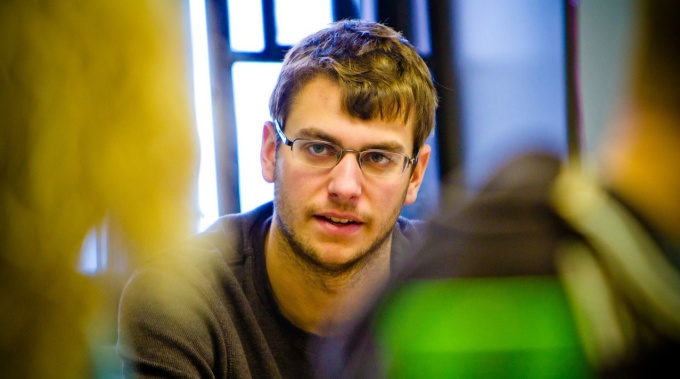MA in History

Our Master's students expand their historical knowledge and hone their communication, writing and research skills in a vibrant and supportive environment.
Apply to the MA in History Program
Students participate in a variety of topical, methodological and research seminars, and then put their skills to work creating their own piece of historical scholarship to serve as the capstone to their studies.
Our program is designed to get students thinking both broadly and deeply. Students take part in small classes that dig into big questions, such as the history of body, comparative slavery, or the growth of urban centers. Our breadth requirements get students thinking expansively, considering the ways that continents and countries inform and influence one another. Students are also encouraged to find their niche and concentrate on mastering their own corner of historical inquiry from expert faculty.
The Master's Program in the UB Department of History provides deep training for anyone serious about and dedicated to history. It offers critical skills practice for those entering professional fields, top-notch content expertise for future Social Studies teachers, and prepares those seeking PhD study.
For more information about our program, please get in touch with the Director of the Graduate Program.
Program Requirements
Subject Areas
Entering MA students, in consultation with the Director of the MA Program, decide upon a major area of historical study, typically drawn from the list of the major fields for PhD study (i.e., American history, early modern European history, modern European history, North and South Atlantic history, East Asian history, Latin American and Caribbean history, and African history). The student may instead select a comparative focus or a more topically-oriented approach.
Coursework
A minimum of 30 credit hours is required; up to 6 hours may be transfer credit hours (including courses taken, with an advisor’s permission, in other departments at UB).
Required Courses
- History 500: Doing History: Issues in Public History or History 501: Historical Inquiry. Students intending to pursue the PhD will likely take History 501; all others are free to choose either course in consultation with the Director of the M.A. Program and/or the faculty instructors of the course(s)
One “Core” course (most of which are two semesters) chosen from selection below involving the student’s major area of interest:
- History 502-503: Core seminar in American History, 1607-Present (6 credits); both semesters of this two-semester course are required.
- History 504-505: Core seminar in European History, Early Modern and Modern (6 credits); both semesters of this two-semester course are required.
- History 507: Core seminar in East Asian History (3 credits), a one-semester course.
- History 506: Core seminar in North and South Atlantic History (3 credits), a one-semester course.
- History 559-560: Core seminar in Latin American and Caribbean history (6 credits); either semester of this two-semester course is required; both are recommended.
Four, five, or six 500-level reading seminars (enough to reach a total of 30 credits with all other requirements). One of these must be outside the student’s major area of interest (e.g., a non-U.S. course for a U.S. historian).
One 600-level research seminar.
MA Project: The MA project is a 30-40 page piece of original research conducted under the guidance of a faculty member. With approval from the advisor, it may be an extensive revision of a paper written for a research seminar.
Advisement
Each MA student, after initial consultation with the Director of the MA Program, will select a faculty advisor by the end of their first year who will aid the student in developing an appropriate program of coursework.
Master's students should consult the Master's Program Handbook and their advisors for specific information regarding academic planning.